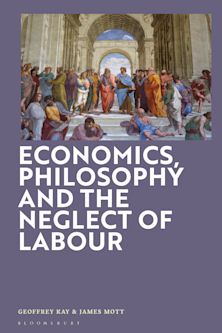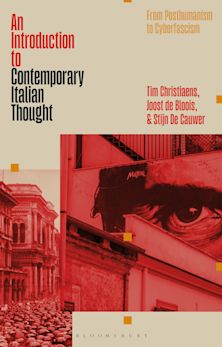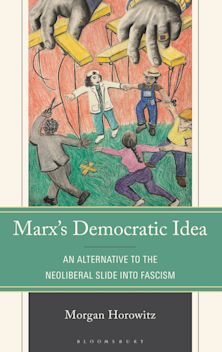- Home
- ACADEMIC
- Philosophy
- Social and Political Philosophy
- Democracy in Spite of the Demos
Democracy in Spite of the Demos
From Arendt to the Frankfurt School
Democracy in Spite of the Demos
From Arendt to the Frankfurt School
You must sign in to add this item to your wishlist. Please sign in or create an account
Description
The value of democracy is taken for granted today, even by those interested in criticizing the fundamental structures of society. Things would be better, the argument goes, if only things were more democratic. The word “democracy” means “the power of the people,” and scholars with a critical and progressive outlook often invoke this meaning as a way of justifying the honorific status accorded to the term: the power of the people to resist racism, sexism, imperialism, climate change, etc. But if the people have the power to resist these structures of domination and inequality, they also have the power to reinforce them. By treating democracy as an end in itself, political theorists of a critical bent overwhelmingly assume that the demos, if given the opportunity, will advance progressive or even radical politics. But given the recent successes of right-wing populism, and the persistence of pathological views such as climate skepticism, is this assumption still warranted? If not, then can democracy really save us?
Table of Contents
Chapter 1: The Categorical Imperative of Democracy
Chapter 2: Arendt's Island of Freedom
Chapter 3: Radical Democracy at its Limits: Rancière, Mouffe, and Laclau
Chapter 4: From False Democracy to False Demos: Adorno, Marcuse, and Climate Skepticism
Chapter 5: What is Elitism?
Bibliography
Index
Product details
| Published | Feb 14 2020 |
|---|---|
| Format | Ebook (Epub & Mobi) |
| Edition | 1st |
| Extent | 194 |
| ISBN | 9781786615268 |
| Imprint | Rowman & Littlefield Publishers |
| Series | Reinventing Critical Theory |
| Publisher | Bloomsbury Publishing |
About the contributors
Reviews
-
A bold intervention that questions the widespread assumption among critical theorists that democracy is an end in itself. This assumption, Busk contends, leaves us without the resources that we need to confront a demos that is increasingly xenophobic, right-wing, and authoritarian in character. In this situation, what we need is not more democracy but rather a critique of the demos itself. For the latter, Busk turns to the theory of ideology developed in the work of Adorno and Marcuse. This book combines an insightful and provocative analysis of the limits and ambivalences of contemporary democratic theory with a compelling defense of the ongoing relevance of the early Frankfurt School.
Amy Allen, Liberal Arts Professor of Philosophy and Women's, Gender, and Sexuality Studies, The Pennsylvania State University, USA
-
In his bracing and timely new book, Larry Busk shows why the democratic turn among left-leaning theorists leaves them mute in the face of post-truth politics. Astutely tracing a fundamental contradiction in the writings of Arendt, Rancière, Mouffe, and Laclau, Busk proposes instead a model of ideology critique derived from Adorno and Marcuse. Without such a critique, he argues, emancipatory theory will neither understand nor adequately address the politics of climate change denial, authoritarian populism, and anti-immigrant xenophobia. His book convincingly demonstrates the acute insights and ongoing relevance of the early Frankfurt School.
Lambert Zuidervaart, Professor of Philosophy, University of Toronto, Canada

ONLINE RESOURCES
Bloomsbury Collections
This book is available on Bloomsbury Collections where your library has access.



































